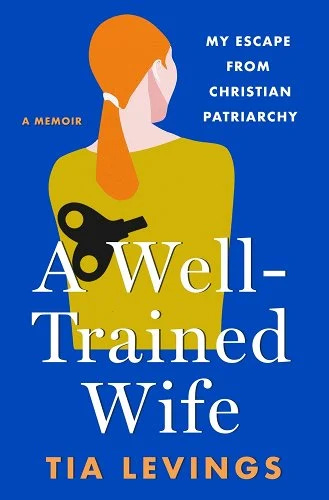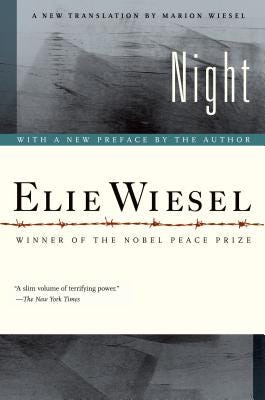
I saw a meme a few days ago that said, “It’s been a long year this week.” Sure feels that way, doesn’t it? It’s totally fine if you need to take some time away from writing to process your emotions and regroup. But for the love of all things First Amendment, please don’t let current events stop you from writing for the next several years.
How to write in a time of cultural chaos
First, the how: take care of yourself. Writing is a form of energy, and if you write from a place of hostility and rage, that will only embed those feelings more deeply in you and in the reader—no matter how gentle the language you use.
Over the weekend, I sent a Counterintuitive Guide to Life newsletter called “How to be an Effective Force for Good, part 1” The central idea is to find a way to become grounded before you take action… in this case, before you sit down to write.
(Expressive writing is an excellent way to process feelings—I do it every day—but in this newsletter, I’m talking about creative writing.)
Reasons to Keep Writing
While many creatives are paralyzed right now, we need art—including all forms of writing— now more than ever. I wrote the observation below in 2014, and it’s become more relevant with each passing year.

Reason #1: The world needs your stories
Those of you who have worked with me know my refrain: “Readers don’t want to watch you have an experience; they want to have an experience through you.” That’s a core principle of creative writing, yet it’s also essential in this cultural moment.
When people read a well-crafted memoir, they’re looking through the author’s eyes and listening through their ears. We all know that experience of being so completely immersed in a story that we feel the author’s feelings as intensely as—sometimes more than—our own.
By helping someone see the world through your eyes, you’re allowing them to expand their horizons and their worldview. A great example of this is Tia Leving’s A Well-Trained Wife, which takes the reader through her indoctrination into and escape from Christian Fundamentalism and patriarchy. It’s a harrowing read, like a real-life Handmaid’s Tale, yet it helps those of us living in a progressive bubble (and I admit, I’m one) see and understand what’s happening in the U.S..
This isn’t limited to memoir; Margaret Atwood was prescient when she wrote The Handmaid’s Tale in the early 1980s. You don’t have to be Margaret Atwood (few of us are) in order to share fictional stories based on your insights and observations.
Reason #2: Write to create the world you want
“Be the change you want to see in the world.” —Gandhi
This applies to all genres of books. Write a novel set in a world you’d like to live in; write a memoir about a time when kindness and compassion saved you. If you write practical nonfiction, what are the solutions to problems you see today? (Caveat for nonfiction: Unless you already have a significant audience, you’ll likely have to self-publish or use a legitimate hybrid publisher like SheWrites or Greenleaf.)
For example, The Counterintuitive Guide to Life is my passion project, rooted in my experience as someone who once had multiple anxiety and depressive disorders (12 labels, all told). I was resistant to any idea other than that my brain was broken. Period. (Pro tip: It wasn’t, and yours isn’t.) Yet through a series of circumstances and practices, I reclaimed my wholeness and found my way to lasting inner peace. I now have a vast toolkit for inner peace and mental health resilience. I no longer see myself as having been “mentally ill;” rather, I see that the dominant culture is not designed with my needs in mind—or most people’s, really.
I write Counterintuitive Guide to remind myself of the practices that help me, and in doing that, I can help others. Suddenly, the idea of mental health resilience and knowing your wholeness has taken on a whole new resonance. I’m writing not only for myself, but for friends who are struggling with current events.
The big caveat here is not to write from a place of hostile anger, but rather from a place of recovery, empowerment and hope.
Which leads me to…
Reason #3: Write as a refuge from the chaos
Whether you’re writing practical nonfiction, memoir or fiction, your writing time is your time to escape into the world of your book. Depending on your topic, this can be a healing way to remember that not everything is upside-down. The world still exists in this moment. The sky is still there. So is the ground. So is the world of your book.
If you’re not writing a book, there are still plenty of good reasons to write—even if you have no desire to publish anything. Writing can be deeply cathartic; it can give us hope and help us find meaning in our lives—or articulate the meaning we have found.
Let creativity be a grounding force in your life.
Reason #4: Be a witness for future generations
I’m pretty sure we’re all tired of the word ‘unprecedented,’ but we are, truly, living in an unprecedented time, and that means future readers will want witness accounts of what’s happening today.
Where would the literary canon be without Elie Wiesel’s Night, his profound and poignant memoir about surviving Nazi death camps during the Holocaust? Or Persepolis: The Story of a Childhood, Marjane Satrapi’s memoir of growing up during the Islamic Revolution?
Through memoir, you can share information others around the world might never otherwise know, as in Sonali Deraniyagala’s Wave, her memoir of the 2004 Indian Ocean tsunami that killed her entire family. Or They Poured Fire on Us From the Sky: The True Story of Three Lost Boys from Sudan, by Alphonsion and Benson Deng and Benjaman Ajak, with Judy A. Bernstein.
While most survival memoirs are understandably serious, they don’t have to be. Trevor Noah’s Born a Crime: Stories from a South African Childhood weaves the serious topic matter with the author’s well-known humour.
Reason #5: This, too, shall pass.
The one consistent truth about life on this planet is that everything changes. All. The. Time. Writing can help us see that what seems daunting and permanent isn’t. Life is nothing but a series of cycles (and paradoxes, but that’s another post). Writing about a point in your life, or a shift you wish would happen, can anchor you and help you weather the current storm.
This is not to say just think happy thoughts and all will be well. Things are challenging for many people right now, and it’s important to allow those feelings so they can pass through.
Instead, I offer this as a practice of cultivating resilience: By noticing the cycles around us, we can strengthen our ability to stay in the moment and be comfortable with uncertainty—two life skills that are essential to both creativity and well-being.
New Coaching Packages — updated January 2025
It can be difficult to break away from the news and focus on your creativity. It can also be challenging to navigate which writing advice is relevant to you and your goals. Hiring a writing coach is like having your own personal cheerleader, who is also an expert in narrative writing and can help you navigate your path to publication. (And also writes about mindfulness and mental health resilience, as a bonus.)
I’ve recently revamped my writer coaching packages:
They’re no longer time-limited. Previously, my packages were based on three, six or 12 months, but many of you told me you’d prefer to be able to touch base and get feedback on an as-needed basis.
For those of you who prefer regular accountability, I’m happy to meet biweekly or monthly.
Packages are now based on how many calls and/or sets of page reviews you’d like (single, three, six or 12)
I’ve also reduced the cost to make working with me more accessible to more writers. Find Your Flow coaching starts at $250 per session; coaching with page edits starts at $340. If you purchase (or gift) a package, the per-session price is discounted by 10-20% (depending on the package).
If you’re:
Looking for accountability and support for your writing this year
Developing your book proposal and would like guidance and support
Struggling to find your way back into creative flow after chaos
Researching agents to query
In your launch window and need a cheerleader-slash-mindfulness coach
Just interested in writing something creative
Support from a writing coach can help you achieve your goals—and stay grounded in the process.
Migration to BlueSky
On a different note, I’ve joined BlueSky in an attempt to consolidate the three ‘streams’ of my writing: Writing advice, Counterintuitive Guide, and the human-animal bond. Those topics aren’t as divergent as you might think!
Lastly, a Shameless Plug for My Gift Book
If there’s anyone on your holiday gift list who has recently lost an animal friend, please consider giving them P.S. I Love You More Than Tuna, my illustrated gift book to heal broken hearts.






